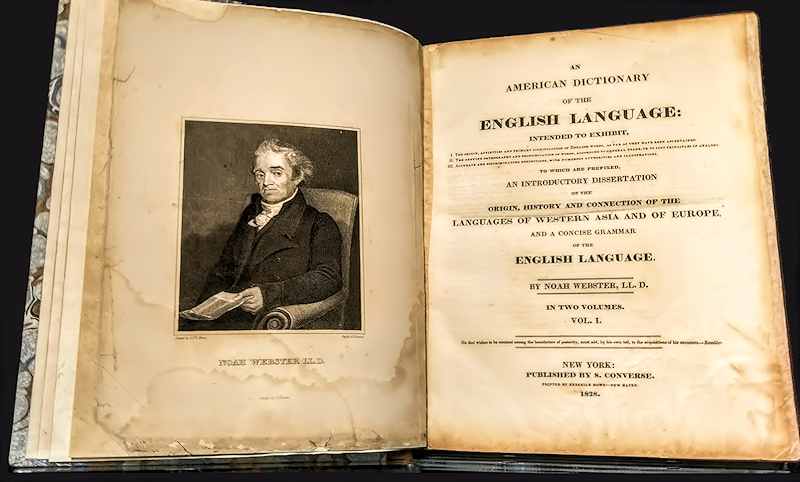When I was younger in the faith, I had a teacher that was adamant about not taking definitions of words for granted. That might not sound like earth-shattering information, but the truth is, more definitions are set for us early in our lives and may, or may not, be accurate. Consider a young Catholic boy who is told there will be a “baptism” at his church today. He goes and watches an infant get sprinkled with water and hears the priest call it a baptism. From that point on, when he reads the bible and sees the word “baptism,” he thinks, “sprinkling.” In contrast, a Protestant goes through the same experience but instead of sprinkling he sees a person fully immersed into the water. From that point on, when he reads the bible and sees the word “baptism,” he thinks “immersion.”
Over the years I have come to understand that there are many words in our bibles that all too many Christians don’t have as good of an understanding of as they might think. Some of these words aren’t as weighty as others, some are. Consider the word “righteous.” God desires for us to walk in righteousness, to live righteously. So what exactly does the word “righteous” mean? According to a simple Google search, which I did because that is how most people get their information today (an act I do not support), it means “the quality of being morally correct, justifiable, or upright.” The online Webster’s, on the other hand, defines righteous as “to conform to moral or divine law.” With a few extra clicks I found an online entity known as The Bible Project that defines righteousness as, “living in right relationship with God, other people, and all of creation.” As I look through a number of other Christian websites, I see that they all produce a similar definition. While I like the idea of living in a right relationship with God and others, what exactly is a “right relationship with God” and whatever the answer, why isn’t that included in the definitions? And what about conforming to divine law? Could the modern Webster’s be onto something?
When I do a word study, I take into consideration a number of things. First of all, what language (or languages) is the word in question originating from? How is that word defined there? Second, if we are dealing with an English word that was used in earlier bible translations (i.e. Tyndale, Wycliffe, the KJV, etc.) and that word is still used today, has the definition evolved or outright changed over time? We can’t overlook the fact that definitions do indeed change over time. For example, in the KJV, Psalm 59:10 says “the God of my mercy will prevent me.” Does that mean God will keep us from doing something? That’s is how prevent would be used today? However, at the time of the 1611 KJV, the word prevent meant, “to go before, precede.” The entire context has been changed because the meaning of the word has changed. Let’s go ahead and do an abbreviated word study on the word righteous, and see if perhaps there is more depth of meaning we didn’t previously know was there.
The 1828 Webster’s Dictionary defined words as used in the bible at that time. It defines the word righteous as, “Just; accordant to the divine law. Applied to persons, it denotes one who is holy in heart, and observant of the divine commands in practice; as a righteous man. Applied to things, it denotes consonant to the divine will or to justice; as a righteous act. It is used chiefly in theology, and applied to God, to his testimonies and to his saints.”
The Hebrew word for righteous, tsaddı̂yq (H662), it defined in Strong’s as “just, lawful, or righteous.” This definition is identical in the Brown-Driver-Briggs Lexicon. In addition, the Greek word translated as righteous is dikaios, and Thayer Lexicon as well as Liddel-Scott define that word as, “righteous, observing divine laws.”
When we put these together, we have an older English dictionary, plus a compilation of Hebrew and Greek sources that define the underlying word translated as righteous, and they all agree… to conform or walk according to divine law. A righteous person is obedient to God’s commandments, His will, His instructions. Don’t misunderstand if this is is a new concept to you, I am no way suggesting that our works are what brings about our salvation. What I am saying is that once we have turned our hearts to God and become part of the family, that He expects us to seek after and walk in a life of righteousness. This should resonate for us, it should make sense because the opposite is to be lawless, which is something we are repeatedly warned against.
Definitions matter. I used the word righteous to show the need for making sure we are working with good definitions because the bible is clear, His people are expected to walk righteously. If we do not have a good working definition, and Christianity in general does not as shown above, then we can still please God but we are leaving food on the table, so to speak, that we don’t even know is there to consume. There are other words that are a large part of our faith that are not defined to their fullness that we need to consider. The word “faith” is one of them, and that will be the next article in this series.
God bless!





What a difference it makes when we take the time to look closely at God’s amazing word/words!
Thanks Ken, I’m looking forward to your next one.
Shalom
I agree whole-heartedly. A good example of word evolution. Although many definitions from many sources may seem similar, they absolutely can dilute and/or distort the intended definition(s). Some sources may come by that honestly, but, as we know, there is one out there always trying change the Word, and put a spin of doubt or confusion on it…”Yea, hath God said…?”
Wouldn’t it be interesting and probably humorous to do a street quest, asking this generation their definition of righteous?
I have heard it used in a rather trendy fashion when the speaker was referring to something he found exciting or amazing.
Those same interviewee’s might be amazed at the true definition of righteous.
Thanks Ken.
Think on
Great article. I agree we must know REAL meanings of words especially in the Word of God! I see many many believers who read the Word on surface only and they mistranslate what is truly being said and taught. I also know that many translations have changed the meanings and definitions of words and has been changed on purpose to meet their agendas, hence homosexuals. I personally wish we had a translation that was spot on with the true meanings and definitions of the words from the languages throughout the bible. I know that i need to start dissecting and looking up the real meaning of words in the bible. I need to learn more about what Helps (books, software etc) I need to use in order to do this. Thank you for sharing this!